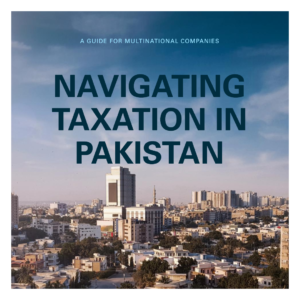Common tax planning strategies as a business owner in Pakistan, it’s crucial to understand the tax laws and regulations to effectively manage your tax liability. Tax planning strategies are essential to ensure that your business takes advantage of available tax benefits and minimizes tax liabilities. Here are some common tax planning strategies for businesses in Pakistan:
- Taking Advantage of Tax Deductions: Pakistan’s tax laws allow businesses to claim various tax deductions, which can help reduce their taxable income. Common deductions include business expenses such as salaries and wages paid to employees, rent for business premises, utilities, insurance, depreciation on business assets, and advertising expenses. By keeping track of all eligible business expenses and claiming them as deductions, businesses can lower their taxable income and reduce their tax liability.
- Availing Tax Exemptions: There are certain tax exemptions available to businesses in Pakistan. For example, some industries, such as export-oriented industries, are eligible for tax exemptions or reduced tax rates. By understanding the tax exemption provisions and requirements, businesses can structure their operations to take advantage of these exemptions and reduce their overall tax burden.
- Managing Capital Gains and Losses: Capital gains tax is applicable on the sale of capital assets, such as stocks, real estate, and other investments. By strategically managing capital gains and losses, businesses can minimize their capital gains tax liability. For example, if a business has realized capital gains from the sale of an asset, it may consider offsetting those gains with capital losses from the sale of other assets to reduce the overall tax liability.
- Opting for Tax Loss Carry-Forward: If a business incurs losses in a tax year, it can carry forward those losses to offset against future profits for up to six years. This can be a useful tax planning strategy to reduce taxable income in future years and lower the overall tax liability. However, it’s important to carefully track and document losses to ensure compliance with tax laws and regulations.
- Structuring Salaries and Benefits: The structure of employee salaries and benefits can have significant tax implications. For example, providing non-monetary benefits such as medical insurance, company cars, and housing can be more tax-efficient than providing higher salaries, as these benefits may be subject to lower tax rates or tax exemptions. By structuring employee compensation and benefits effectively, businesses can minimize their overall tax liability and provide attractive incentives to their employees.
- Taking Advantage of Tax Incentives: The government of Pakistan provides various tax incentives to promote certain industries or activities. For example, there are tax incentives for investments in renewable energy, research and development, and agricultural production. By identifying and taking advantage of these tax incentives, businesses can lower their tax liability and promote growth in targeted areas.
- Managing Withholding Taxes: Withholding taxes are taxes deducted at source from various payments, such as salaries, rent, and contracts, by the payer on behalf of the payee. Businesses can manage withholding taxes effectively by ensuring compliance with withholding tax requirements, claiming applicable exemptions or reduced rates, and reconciling withholding taxes against actual tax liabilities. This can help prevent overpayment or underpayment of taxes and avoid potential penalties or interest charges.
- Timing of Income and Expenses: The timing of income and expenses can impact the taxable income for a particular tax year. For example, businesses can consider delaying the recognition of income or accelerating expenses to lower their taxable income in a given year. However, it’s important to ensure that these strategies comply with the tax laws and regulations, and are supported by appropriate documentation.
- Investing in Tax-Advantaged Retirement Plans: Pakistan’s tax laws allow individuals, including business owners, to invest in tax-advantaged retirement plans, such as the Voluntary Pension System (VPS) and the Employees’ Old-Age Benefits Institution (EOBI).




